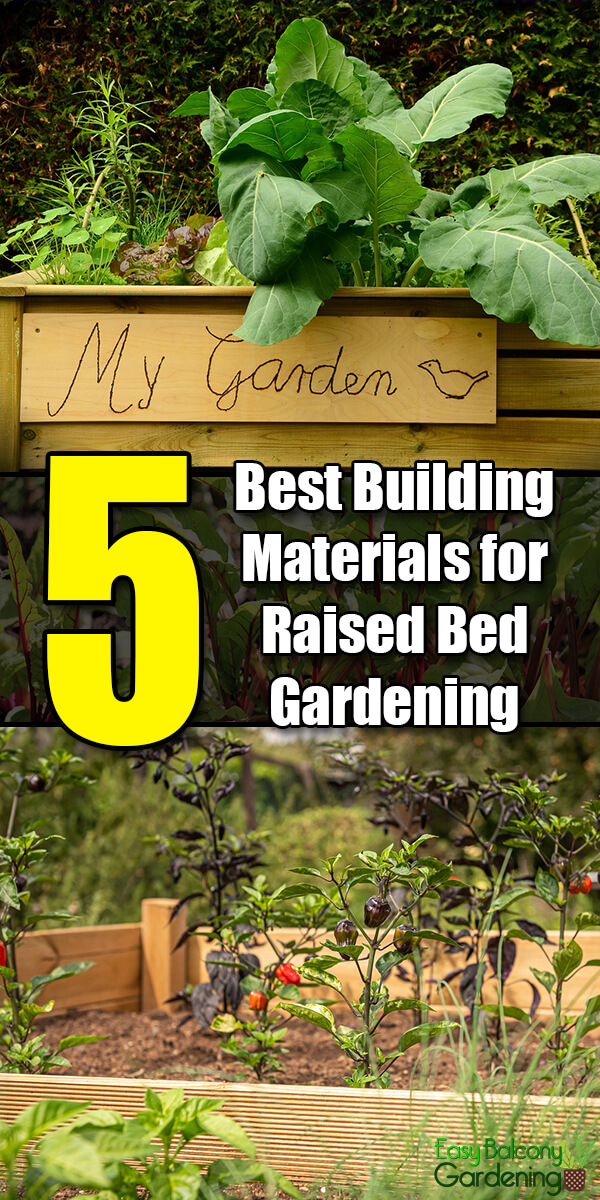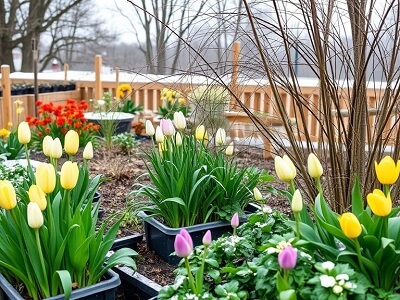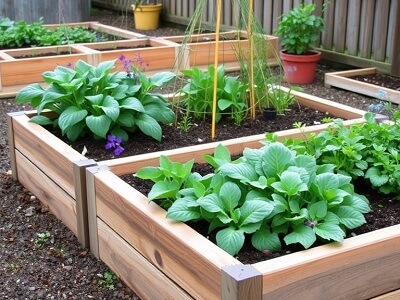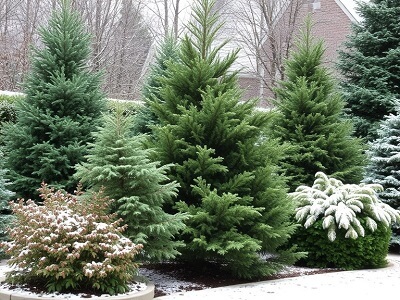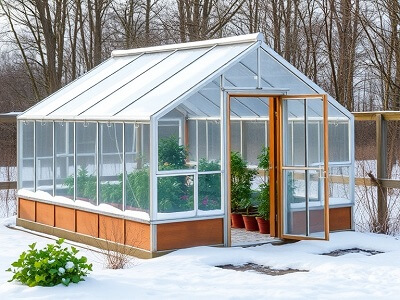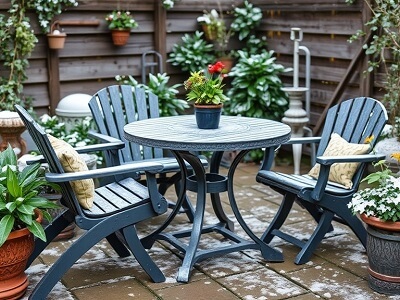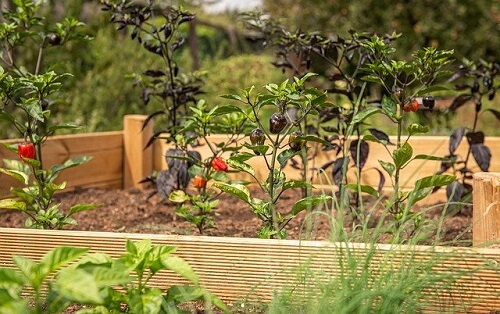 If you have been having trouble keeping your garden weed free, are having a tough time fighting compaction, and aren’t all that excited about having to regularly till your garden area to get the most out of it the odds are pretty good that raised bed gardening is for you.
If you have been having trouble keeping your garden weed free, are having a tough time fighting compaction, and aren’t all that excited about having to regularly till your garden area to get the most out of it the odds are pretty good that raised bed gardening is for you.
There are a lot of benefits to raised bed gardens that we dig a little deeper into in just a moment, but there’s a reason why this form of gardening has really taken off of late. It works wonders, giving you an opportunity to grow in a more controlled – and denser – kind of way than traditional guarding allows for.
At the same time, finding the right construction materials for your raised beds can be a bit of a challenge.
But that’s why we have put together this quick guide!
Big Benefits of Raised Garden Boxes
Right out of the gate we want to highlight just a couple of the big benefits you’ll enjoy when you move to raised garden boxes.
For starters, you are going to see significantly fewer weeds in your garden area when you are using raised beds. This is especially true of weeds like Bermuda grass that can be next to impossible to eradicate otherwise.
Secondly, you’re going to get a lot less compaction in your garden that will help your plants and vegetables really flourish. Soil that gets stomped on (even irregularly) deals with a lot of compaction and chokes out your roof systems in ways that raised beds want.
You’ll also almost completely eliminate the need for tilling on a regular basis. Sure, getting your raised beds set up is going to require quite a bit of extra soil – but you’ll have a lot more control over that soil, what makes its way into it, and can quickly and easily rotate it as necessary without much extra effort.
Lastly, you’ll be able to plant a lot denser in raised beds than you ever would have been able to with traditional garden rose. This method is super popular and often called the “Square Foot Gardening” approach. You’ll be amazed at just how much you can get out of a couple beds when you garden like this!
Finding the Right Materials for Your Raised Beds
Now that we have covered the benefits side of things let’s dig a little deeper into finding the right materials for your garden boxes.
Cinderblocks
Cinderblocks can make great garden beds, especially since they are so readily available, so super durable, and about as inexpensive a construction material as you are going to come across.
On the flip side of things, cinderblocks are pretty heavy and will retain a lot of heat. That might work wonders for a late fall or winter garden but can spell trouble for summer gardens.
Landscaping Rocks
Landscaping rocks (or rocks that you dig up on your own property) are pretty cheap if not completely free, but also give your raised beds a bit of a rustic look that all the other materials we highlight aren’t going to be able to pull off quite as well.
Obviously rocks are very heavy and also do a pretty decent job of retaining heat like cinderblocks well. Combine that with the fact that the gaps between the irregularly shaped rocks are going to need to be filled in to avoid weeds and grass taking over in this might not always be a perfect fit.
Concrete
Concrete gives you a lot of flexibility and a lot of versatility and how you layout and create your garden beds. You’ll be able to set the frames to your desired dimensions, pour the concrete yourself, and then enjoy completely custom raised beds that will last a lifetime and then some.
This approach can get really pricey in a hurry, however. On top of that you may not be all that comfortable knocking out a start to finish DIY concrete project on your own.
Steel and Galvanized Metal
Steel and galvanized metal materials are starting to pop up in gardens all over the world, especially in suburban and urban areas. They have a bit of an industrial look about them, are relatively lightweight with a skyhigh durability rating, and can be assembled rather easily.
At the same time, these materials are going to be super expensive and unless you are dealing with galvanized metal you’ll have to do something to protect against rust – a huge problem in the garden.
Wood
Lastly, we want to touch on the wooden construction materials that a lot of people choose time and time again for a variety of different reasons.
Wooden construction materials are super inexpensive, very lightweight and durable, super easy to use and about as customizable as can be. Unfortunately, wooden construction materials aren’t going to last forever – though you should be able to get a decade or more out of your wooden raised beds before they need to be replaced.
You really can’t go wrong with any of the construction materials we highlighted above to make your dream of a raised bed garden a reality!

